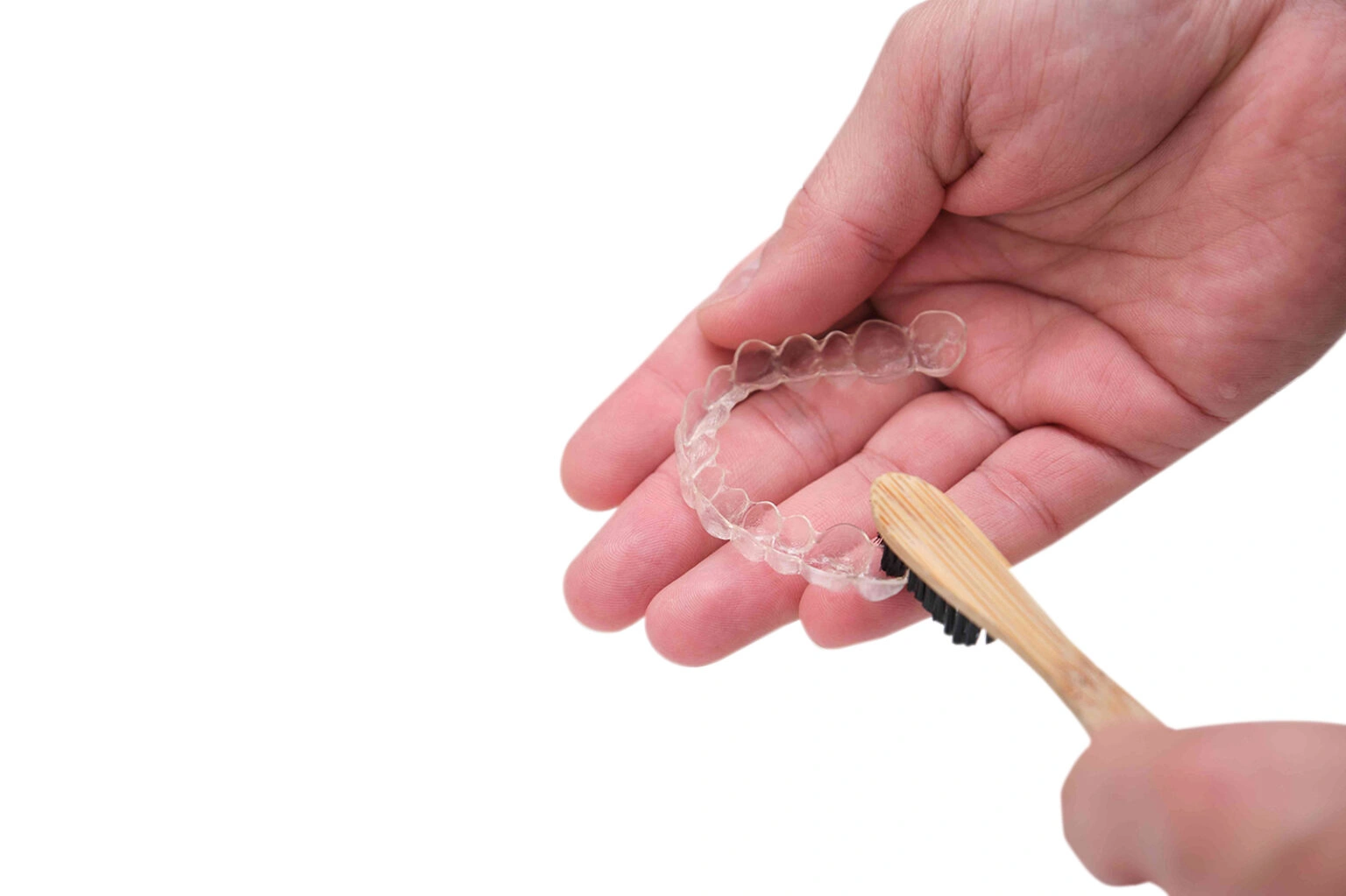How to Clean Retainers: Tips and Tricks

Immediate Aftercare
1. Wearing Your Retainer
Your orthodontist will provide specific instructions on how often to wear your retainer. Initially, you may need to wear it full-time, gradually transitioning to nighttime use. Adhering to this schedule is crucial to prevent your teeth from shifting back to their original positions.
2. Handling with Care
Retainers are delicate and can easily be damaged. Always handle them with clean hands and avoid bending the wires or dropping the retainer. When not in use, store your retainer in its protective case to prevent damage or loss.
Cleaning Your Retainer
1. Daily Cleaning Routine
Clean your retainer daily to prevent the buildup of plaque and bacteria. Use a soft-bristled toothbrush and mild soap or non-abrasive toothpaste. Avoid using hot water, as it can warp the retainer. Rinse thoroughly with cool water after cleaning.
2. Deep Cleaning
Perform a deep cleaning at least once a week. Soak your retainer in a denture cleaner or a mixture of water and vinegar for 15–20 minutes. This helps remove any stubborn buildup and keeps your retainer fresh and odor-free.
Oral Hygiene
1. Maintain Good Oral Hygiene
Brush your teeth at least twice a day and floss daily. Proper oral hygiene prevents plaque buildup on your teeth and retainer, reducing the risk of cavities and gum disease.
2. Regular Dental Check-Ups
Continue to visit your dentist regularly for check-ups and professional cleanings. Your dentist can monitor the health of your teeth and gums, ensuring your retainer is working effectively.
Eating and Drinking
1. Protect Your Retainer
Keep your retainer away from pets, as they may chew on it. Avoid placing it in your pocket or anywhere it might get bent or broken. Always use the protective case when not in use.
2. Stay Hydrated
Drinking plenty of water helps rinse away food particles and bacteria, keeping your mouth and retainer clean. Staying hydrated also prevents dry mouth, which can lead to bad breath and oral health issues.
When to Contact Your Dentist
1. Signs of Damage
If you notice any signs of damage to your retainer, such as cracks, warping, or loose wires, contact your orthodontist immediately. A damaged retainer may not fit properly, reducing its effectiveness.
2. Discomfort or Pain
If your retainer causes discomfort or pain, schedule an appointment with your orthodontist. Adjustments may be necessary to ensure a proper fit and prevent any issues.
Conclusion
Proper aftercare is essential for maintaining the effectiveness and longevity of your retainer. By following these tips and maintaining regular visits with your orthodontist, you can ensure your new smile stays perfect for years to come.
For more information on our dental services, schedule an appointment through https://nationalmed.ae or visit our clinic.

